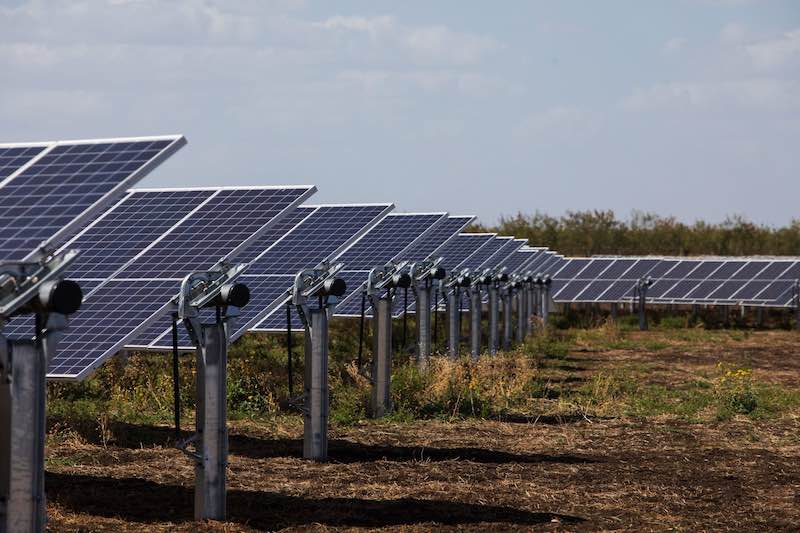

A major Australian winemaker has unveiled a $10 million investment in solar electricity that will power almost one third of its biggest winery, or the equivalent of 1900 houses.
Casella Family Brands, best known for its Yellow Tail wines, revealed its renewable energy investment on Tuesday, which it said was the largest solar installation by an Australian beverage producer to date.
The solar farm, located near its wine-making site in Yenda, in NSW’s Riverina region, features more than 8700 panels.
The firm’s announcement comes months after Wine Australia released an environmental plan for the industry, with a goal to cut emissions by 42 per cent in 2030.
The new solar farm, located 3.5km from its Casella’s winery, is capable of producing 11.53 gigawatt hours of energy every year, or enough to provide 35 per cent of the facility’s power needs.
Its 8730 solar panels will also be used to power the company’s on-site brewery that produces beverages for brands including Pressman’s Cider and Yenda Brewing Co.
A second solar installation with 936 panels will be used to power 30 per cent of the company’s wastewater treatment plant.
Casella Family Brands founder and managing director John Casella said the solar investment would help the company to reach its goal of cutting greenhouse gas emissions by half in 2030 and producing net-zero emissions by 2050.
“We’re committed to playing a role in ensuring the resilience of the Australian wine industry for generations to come,” he said.
Wine Australia released its Emissions Reduction Roadmap last September that outlined plans to cut emissions in vineyards, wineries, and supply chains by 42 per cent in 2030.
Strategies to achieve the cuts include solar generation, renewable energy purchases, electrifying diesel irrigation systems, using lightweight bottles, and reducing road transport and shipping emissions.
Wine Australia chief executive Martin Cole said the size of Casella’s solar energy deployment showed how seriously the industry was taking the environmental challenge before it.
“This is an important investment for Casella and the Riverina region and supports the broader sector’s work to safeguard the future of Australian wine,” Dr Cole said.
Source: AAP
This post was published on April 10, 2024 10:56 am
Iconic Australian hardware and garden store says it has reached 100 per cent renewables, with…
Data used to showcase the downward impact of renewable energy on power prices contained a…
Most so-called ‘community batteries’ are actually installed by electricity networks, but this local group managed…
Rising energy bills are driving a surge in complaints. The NSW Energy Ombudsman wants better…
Australians are often being misled when they try to make sustainable electrical appliance choices, and…
China EV giant bows to trend of offering "complete solutions" for home energy, with launch…